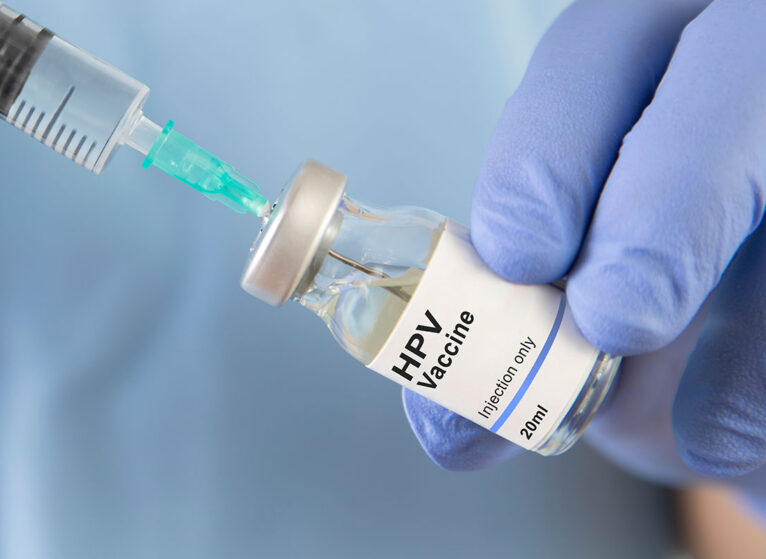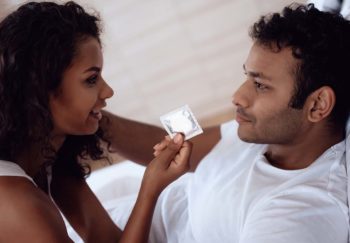Human papillomavirus (HPV) is the most common sexually transmitted infection (STI). It’s so common that most sexually active people (who haven’t gotten the HPV vaccine) will have an HPV infection at some point in their lives.
Learning how often people get infected with HPV can feel scary. So, it’s important to know that most HPV cases don't cause any symptoms or health problems. However, that doesn’t mean you shouldn't take it seriously. Some HPV infections do cause warts (rough bumps) on the skin or genitals, and some can even cause cancer.
So, how is HPV spread? How often does it lead to cancer? Is it treatable? Can you prevent it? We spoke to infectious disease expert Tania Thomas, MD, to get answers to all of your HPV-related questions.
Are there different types of HPV?
Yes. There are more than 200 types of HPV. They fall into two main groups:
- Skin HPVs can cause warts on the skin (usually on hands, feet, arms, and legs). No cancer risk with these.
- Genital HPVs affect the moist entrances of the body, such as the vagina, anus, mouth, and throat. They can cause warts and carry a cancer risk, low or high.
What types of cancer can HPV cause?
If a genital HPV infection stays in your body for a long time, it may damage some of your cells. The abnormal cells could become cancer.
HPV can lead to the following cancers:
- Cervical
- Vulvar
- Vaginal
- Penile
- Anal
- Mouth/throat
Is HPV contagious? How does it spread?
Yes, HPV is contagious. As long as the HPV virus is in your body, it can spread to others through skin-to-skin contact.
The HPV virus mostly spreads from person to person during sex (vaginal sex, anal sex, and oral sex). It doesn't spread through bodily fluids, such as semen, sweat, or blood. While rare, HPV can spread through kissing and other types of touching.
"Your risk of getting HPV increases with the number of sexual partners you have," adds Thomas. "It is estimated that around 75% of sexually active adults have been exposed to at least 1 type of HPV by age 50."
What are the symptoms of HPV?
Most of the time, HPV has no symptoms.
Warts, including genital warts, are the most common HPV symptom. They usually appear within a few months of getting the virus, but they can take longer to show up. Sometimes they can cause itching or bleeding.
Unfortunately, people usually have no symptoms of high-risk HPV infections that can lead to cancer. Cancers from HPV can take 10-20 years to form.
Need an STD Test? Read our STD testing FAQs.
How do I know if I have HPV?
Most people find out they have HPV through an HPV test. Starting at age 21, women should get yearly Pap tests to check for abnormal cells that could develop into cervical cancer. Starting at age 30, women should have an HPV test done every 5 years.
Can people who have anal sex, including gay men, get screened for HPV?
"Yes, there are a few different ways to screen for HPV-related cancer (or pre-cancer) in the anal canal," says Thomas. Doctors can do:
- Tests that look for HPV and see what kind of strain it is
- Anal Pap tests, which, like cervical pap smears, find cells that could be pre-cancerous
- Digital rectal exams to detect small masses
Some doctors don’t know about or don't offer this screening, because the U.S. Preventive Services Task Force hasn't yet adopted it. But several organizations serving high-risk populations do. People who are at higher risk include:
- Women with other HPV-associated genital cancers
- HIV-negative men who have sex with men
- People living with HIV
- People with solid organ transplants
Talk to your primary care provider if you have rectal screening questions. You can also find more information and recommendations from these specialty groups: the International Anal Neoplasia Society (IANS), HIVMA/IDSA, and the American Society of Colon and Rectal Surgeons.
Can I prevent HPV?
Yes. There is a highly effective HPV vaccine available for both men and women. When the vaccine is given before a person is exposed to HPV, it is 97% effective in preventing cell changes that could lead to cancer. It’s also almost 100% effective in preventing external genital warts.
Why is the HPV vaccine only for kids and not older people?
This vaccine focuses on children because it works best when given at a young age, before people are exposed to HPV. However, the HPV vaccine is actually licensed for people up to age 45 years in the U.S.
The reason this isn’t promoted as much for adults over 26 is that, by that age, many people have already been exposed to HPV. But, "I’d encourage anyone who is over 26 and hasn’t received the HPV vaccine to talk to their doctor about whether it could be beneficial, particularly if they're likely to have new sexual partners," Thomas says.
If I've been vaccinated, do I still need cancer screening?
"Yes," Thomas says. "Getting the vaccine is important, but it is not a replacement for cancer screening. This is because it is possible for some people to be exposed to HPV before getting the vaccine, and because the vaccine only covers the 9 most common strains that cause cancer."
Can HPV be cured?
There is no medical treatment that cures an HPV infection. However, about 90% of HPV infections are cleared out naturally by the body’s immune system within 1 to 2 years.
Treatments are available to remove warts (including genital warts) and to remove abnormal cells in your cervix or anus to prevent cancer from forming.
Can I still have sex if I have HPV?
HPV is very contagious, but you can take steps to lower your risk of spreading it. First, it’s important to tell your potential partner that you have HPV. They should do their own research to decide if they are comfortable with the risks.
If you have HPV, you can reduce your risk of spreading it to others by:
- Encouraging your sexual partners to get the HPV vaccine, thereby lowering their risk of infection
- Using condoms and dental dams
- Treating genital warts before sexual contact
Thomas notes the key word here is "reduce." Sometimes, "the condom or dental dam doesn't cover the skin that's infected with HPV," she says. So it's still possible to transmit the virus in some cases.
On top of that, "HPV can remain dormant in the skin, so you can spread it without an obvious wart."
Some people get confused about whether skin HPV warts can become genital HPV warts (and vice versa). Can one type of HPV become another?
There are over 200 types of HPV. The ones that cause common warts on the skin or soles of your hands or feet (HPV 1-4 and others) are different from the types of HPV that cause genital warts (HPV 6, 11, and others).
In adults, genital warts usually do not affect other areas of the skin.
In kids, HPV 1 and 2 can sometimes be seen in the genital area, causing much confusion and concern.
Why STDs Keep Coming Back
Right before COVID, STDS were on the rise. Why can't we eliminate them?
How is the HPV virus similar to the herpes virus?
Both viruses have strains that are sexually transmitted and strains that aren't (spread through other contact). And, both can have a dormant stage before recurring.
Both are quite common in the general population. Most estimates suggest that over 50% of the population has been exposed.
Are the treatments for skin and genital warts the same?
Warts are hard to get rid of. Both kinds of warts can go away on their own. This can take months or years.
Options for skin warts include:
- Salicylic acid, which you can get over the counter
- Cryotherapy (liquid nitrogen), a clinic treatment with some over-the-counter options
Genital wart treatments include:
- Topical treatments, which can take up to 4 months at home
- Cryotherapy, sometimes done at weekly clinic visits
These treatments have a low success rate. Genital warts often come back.
Thomas suggests that a wart can be left untreated if it isn't causing itching, blood, pain, or other issues.


